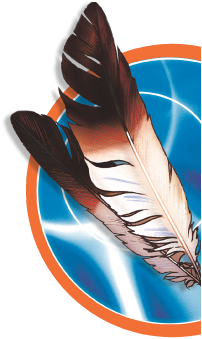Our Story
The Central Interior Native Health Society emerged in 1991 in response to the findings of the Royal Commission on Health Care that Aboriginal people accessed health care differently than the rest of the population. The research showed Native people wait for far too long before accessing health care services. They were often very ill, before they sought medical help.
Aboriginal leaders in Prince George came together to form the CINHS society. At the same time the provincial government created the Aboriginal Health division within the Ministry of Health. This division provided the initial funds and the CINHS Clinic was able to start operating April 1, 1993 at the corner of Fourth and George streets in downtown Prince George.
For the next ten years, 1993 to 2003, services were delivered by a small yet determined group of multidisciplinary professionals. The model of a multidisciplinary team as a result of a community visioning session in May 2003, the CINHS clinic was chosen to be the Urban Primary Health Care Site for Northern BC. In November 2003, new funding and new staff were committed to initiate the primary health model. As this model proved its relevance and efficacy with reaching and delivering high quality health care to the previously underserved Aboriginal population, more funding was allocated resulting in the expansion of services. In 2008, the clinic expanded into the vacant premises next door to accommodate the growing client base and larger staff complement.
As more funding from Northern Health was allocated, the clinic was able to develop into its original vision as a interdisciplinary health care facility. These services include, physicians, nurse practitioner, nursing, counselling and social work services.
CINHS is a not for profit agency administered by a Board of Directors who are themselves Aboriginal. The board members come from a variety of communities and nations and bring a wide Aboriginal perspective to the direction and values of the organization. They are primarily a governance board where they focus on setting direction and approving policy. The board members also provide valuable links to the community at large.
As it often true of Aboriginal governance, everyone at the clinic, including the clients and community members are involved in keeping the clinic relevant.
CINHS is a very close partner with Northern Health as we deliver Primary Health Care to many of the most vulnerable citizens in our community. Northern Health has ensured that CINHS has had appropriate funding and support as we evolved into a dynamic and forward thinking organization that is at the forefront of Aboriginal health, primary care reform and service integration.
CINHS is a Primary Health Care Clinic. We deliver team based integrated Primary Health Care to the community of Aboriginal people and people who live close to the street. When a person from that community becomes a patient of our clinic we enter into a comprehensive, longitudinal primary care relationship with them until they no longer need our services. (We are their “Family Doctor” to sue a more familiar term).
What makes CINHS different?
Everyone who visits the clinic, or who works here or has a temporary learning position knows that the clinic is a very different and very special place.
There are some important commitments that set the CINHS clinic apart:
- We put Aboriginal culture, practices and values at the heart of our work
- We are committed to learning together
- We recognize and work on the social determinants of health
- We understand and work to redress the impacts of colonization and its tools – such as residential schools
- We see social justice as both a process for and an outcome of, the health and well being of Aboriginal people
- We are committed to breaking down professional silos to provide integrated patient centred care
- We are committed to staying current, considering the evidence and engaging in continuously improving quality of care.
The clinic and its staff pay attention to these commitments every day. More importantly perhaps, they make sure they take scheduled time every week to meet and review the work, the challenges and the needs of the clinic and the patients as a team.
The clinic is also committed to being part of an enhanced broader community. We strive to be champions for improved access and services both inside and outside of the clinic and to be partners with other leaders and seeking changes and improvements for the health of Aboriginal and vulnerable people. The clinic works extensively with sympathetic and visionary professions in the health community to improve access for vulnerable people.
